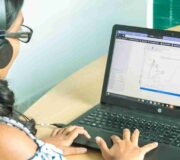The Adaptive Teaching Approach That’s Helping Hundreds Of Schools Personalise Teaching At Scale
Every class will have pupils with different levels of prior attainment, each with different strengths and needs. That’s why adaptive teaching is so important.
Here, we’ll explore how hundreds of primary and secondary schools across the UK use an approach to adaptive teaching that combines teacher insights, online assessments, and real-time questioning to effectively adapt teaching for thousands of pupils every week.
Primary and secondary schools come to us because they have pupils working behind where they need to be and are at risk of not meeting the expected standard.
They select which pupils need additional support and we provide them with a range of purpose-built AI maths tutoring programmes each designed to be completely personalised to each pupil’s strengths and needs.
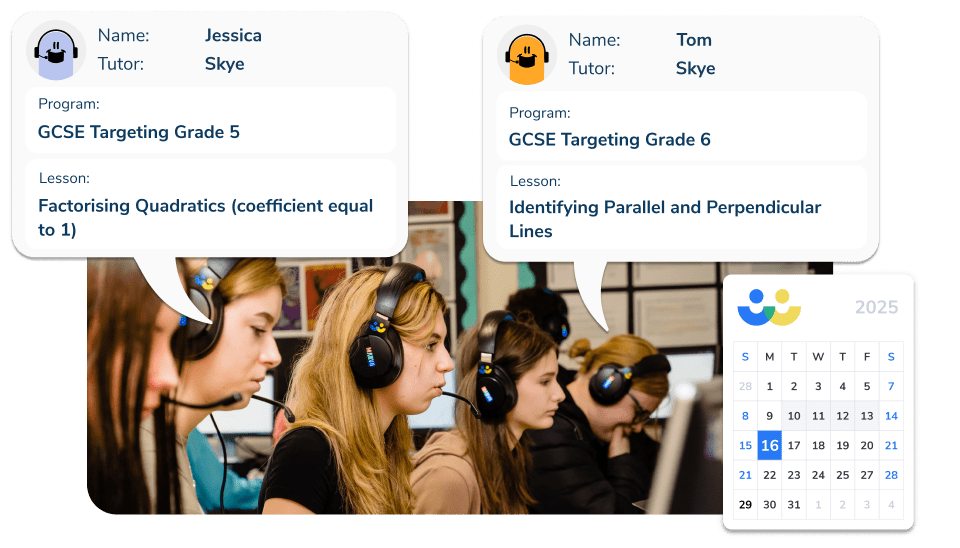
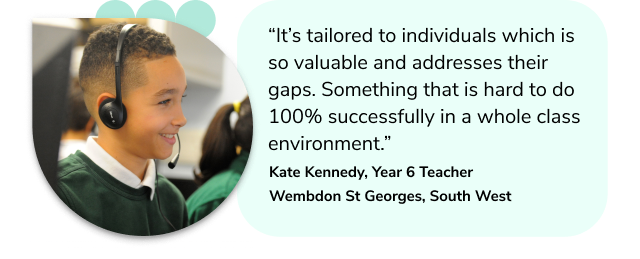
Teacher insights to ensure each pupil’s needs are met
Even before a Third Space Learner has their first online one-to-one session with Skye, steps are taken to adapt the teaching they will receive.
It all starts with the pupils’ teachers, as they’re who knows each pupil the best. We give teachers the choice of 22 tutoring programmes so pupils can make progress whatever their level of prior knowledge or potential barrier to learning.
Each programme contains 20 lessons, purposefully created and ordered by default to best meet each programme’s goal. This order is completely adaptable, allowing teachers to align the tutoring to class teaching or prioritise areas they know their pupils struggle with.

- Primary AI maths tutoring
- 5 Foundation Programmes (Years 2-6) help pupils who are significantly behind expectations for their current year, with a goal of closing gaps
- 5 Booster Programmes (Years 2-6) help pupils who are just behind and are designed to accelerate progress
- The SATs Revision Programme is for pupils who would benefit from additional SATs-style question practice to achieve EXS in their maths SATs
- The Year 5 Ready to Progress Programme supports pupils in the summer term as they prepare to move up to Year 6
- Secondary AI maths tutoring
- 5 KS3 programmes are available to support students depending on how far back their gaps go and what support they need, ranging from programmes designed to address outstanding gaps from KS2 to programmes to prepare students for KS4
- 5 GCSE programmes to choose from depending on each student’s target grade, with programmes available for grade 3 to grade 7
Adaptive Teaching CPD Guide For Schools
Discover the key strategies for implementing adaptive teaching across your school to help meet pupils’ needs and improve attainment.
Download Free Now!Diagnostic assessments to form the foundation of adaptive teaching
Next, the focus shifts to the pupils and deepening the understanding of each pupil’s unique needs. We do this through a pre-programme diagnostic assessment.
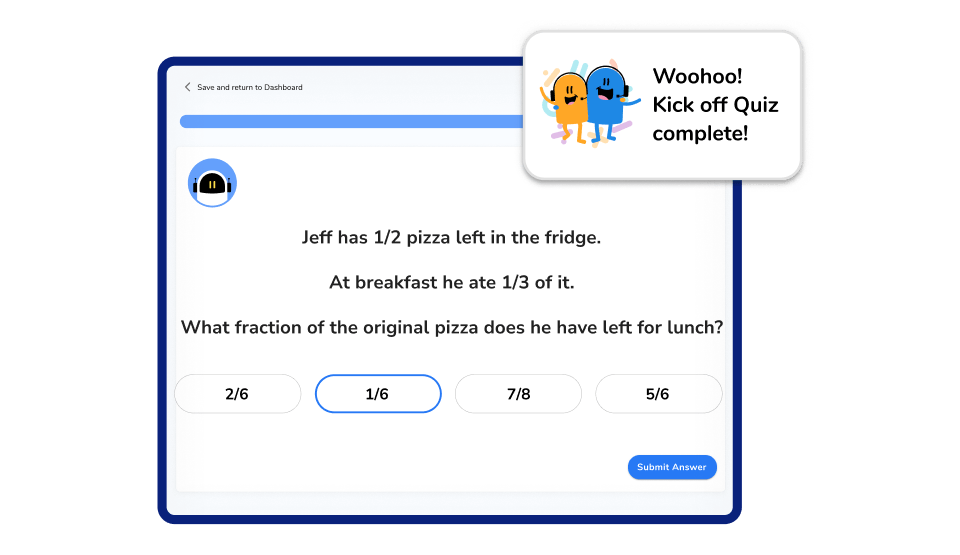
This tells us (and their school!) how we should adapt teaching for this pupil. That is, which of the 20 lessons in the programme might need more time, and which can be used as an opportunity to quickly recap knowledge before moving on.
Teachers can use the results of this diagnostic assessment to adapt the order of the lessons in each programme at any point.
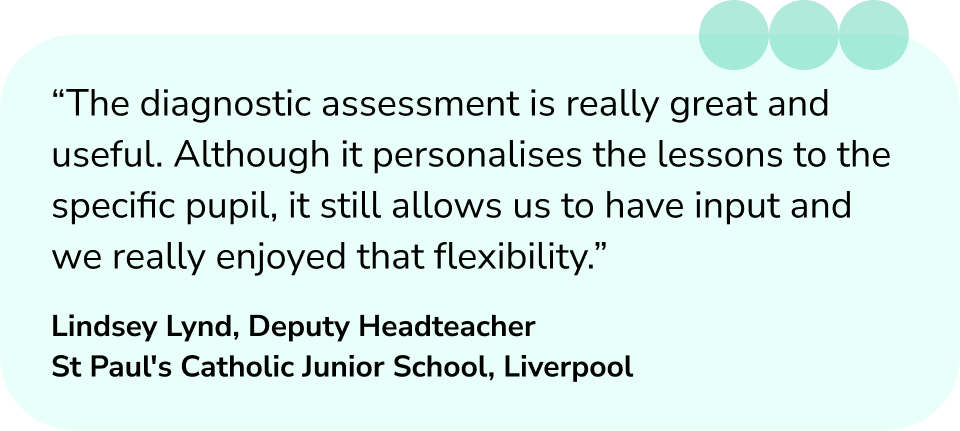
Formative assessments and scaffolded lessons to adapt teaching in real-time
When it comes to the time of each pupil’s scheduled AI tutoring lesson, Skye – already equipped with the results of each pupil’s diagnostic assessment – uses formative assessment and our specially created scaffolded lesson slides, each with adaptable pathways, to respond to pupil needs in real-time.
Through this scaffolding, we can support an ambitious curriculum that’s accessible to all; all pupils can work through all lessons, just with slightly different levels of support depending on their needs.
All tutoring lessons begin with a pre-assessment slide to help tutors understand how secure a pupil is with this concept. The results of this assessment will help them decide what pathway to take:
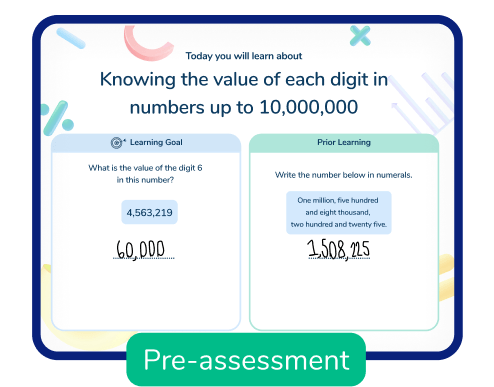
If pupils struggle, Skye can start the lesson with a prior learning slide to ensure pupils have the prerequisite knowledge they’ll need to get the most out of the lesson:
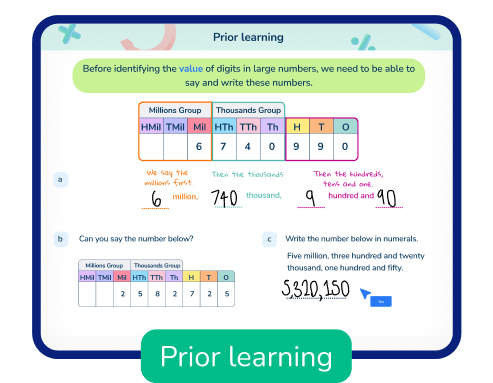
Skye then uses ‘I do, we do’ slides to allow pupils to build conceptual understanding of the topic, before allowing the pupil to practise the skill. Skye can skip the prior learning slide and start here if the pupil showed in the pre-assessment slide that this wasn’t needed:
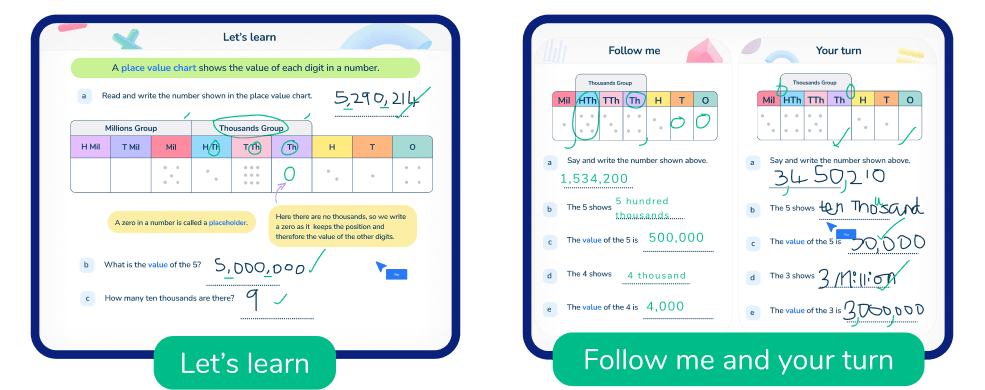
If, during the pre-assessment slide, the pupil has shown they’re already secure and confident in this topic, Skye can skip the ‘let’s learn’ and ‘follow me + your turn’ slides and move straight on to the independent practice portion of the lesson:
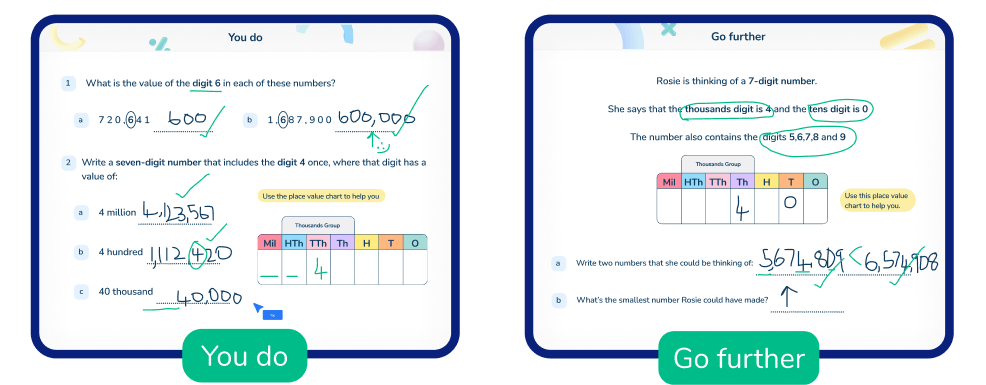
Let’s see what this adaptable pathway looks like altogether:

As well as these structured assessments, Skye is also trained to use effective questioning throughout the lesson to assess pupil understanding and adapt the teaching accordingly, for example:
- Can you explain how you got this as your answer?
- What do you think you need to do first here?
- Why do you think that’s correct?
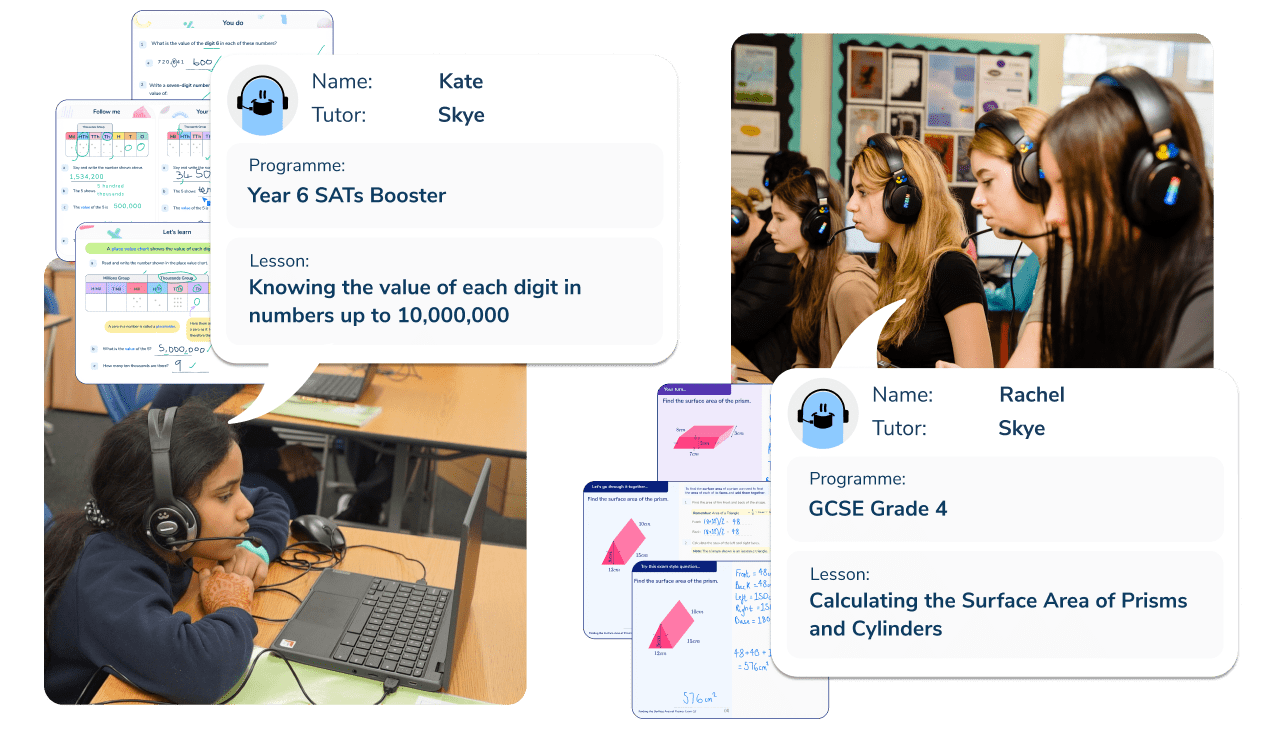
Meet Skye, the voice-based AI tutor making maths success possible for every student.
Built by teachers and maths experts, Skye uses the same pedagogy, curriculum and lesson structure as our traditional tutoring.
But, with more flexibility and a lower cost, schools can scale online maths tutoring to support every student who needs it.
Watch Skye in actionPost-session questions to help adapt future teaching
Once a lesson ends, there are still opportunities to adapt future teaching.
All Third Space Learning AI tutoring sessions end with Post-Session Questions (PSQs) which ask pupils to answer a question on the topic they’ve just covered with Skye.
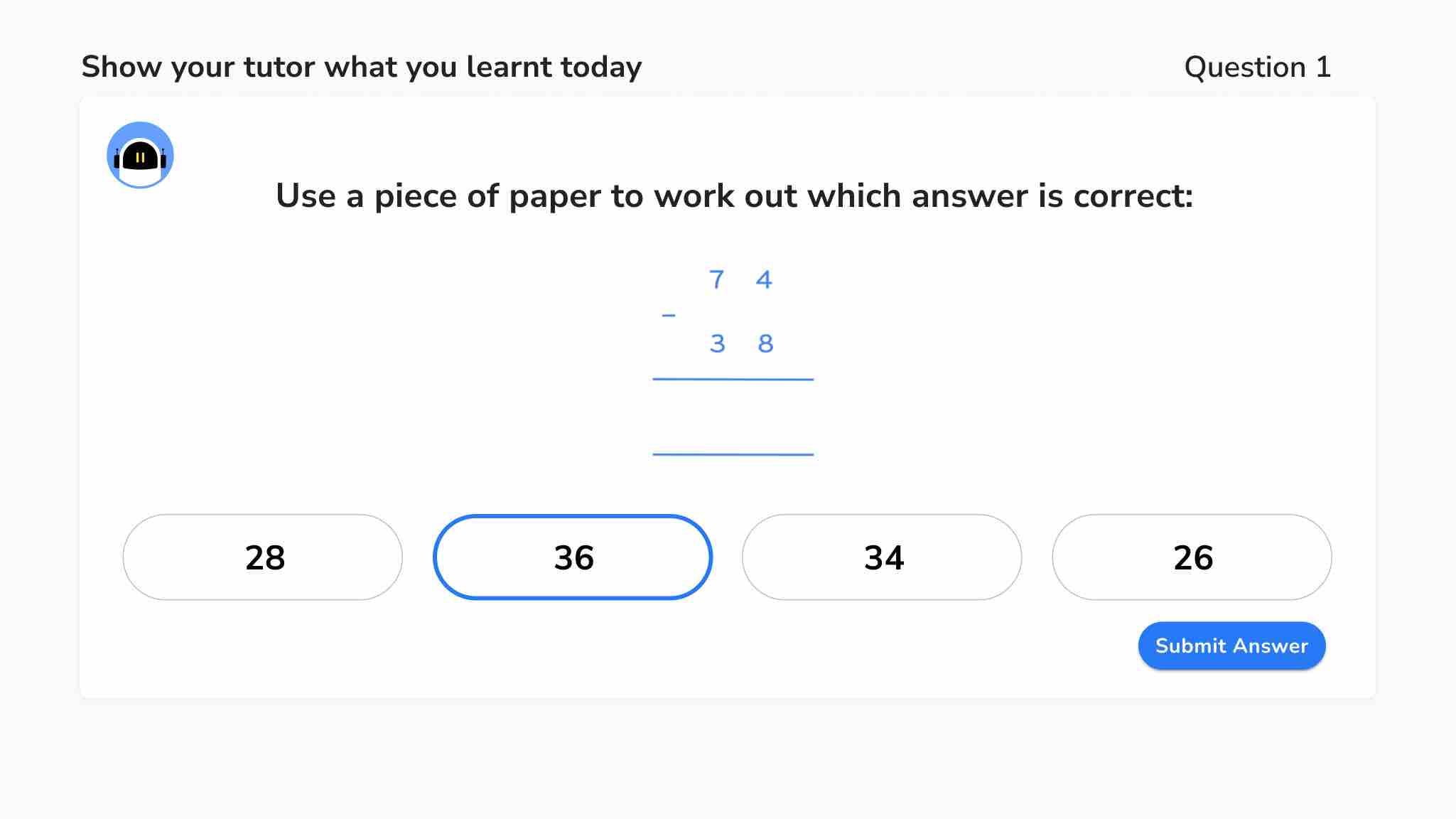
Not only does this help teachers to track pupil progress during the course of the programme, but the results give Skye even more insights to adapt teaching in the future:

Combining technology with human insights to help adapt teaching at scale
Adapting teaching for a few pupils is very different to adapting teaching for whole classes or cohorts.

That’s why we believe in harnessing technological and human insights to support teachers in providing adaptive teaching for multiple pupils – all at the same time.
Online assessments quickly and easily identify individual knowledge gaps, helping to prioritise different topics and adapt and scaffold teaching accordingly. Online tutoring means multiple pupils can benefit from one-to-one support all in the same timeslot, without needing multiple tutors to come into the school at once.
Through Skye’s dialogue-driven formative assessment and effective questioning, we can further deepen our understanding of pupils’ learning and the misconceptions that may be holding them back.
But without human insight, these can only help us to adapt so far; we need to pair them with what teachers know about their pupils.
If you visited a Third Space Learning school, you might find 10 different pupils all in a room, all working on the same lesson but working on the exact pathway at the exact pace that meets their needs – depending on how Skye adapts the lesson in real time.
Or, you could just as likely find 10 different pupils all working on 10 different topics, each chosen by their teacher and guided by the results of their diagnostic assessment to provide support exactly where each pupil needs it.
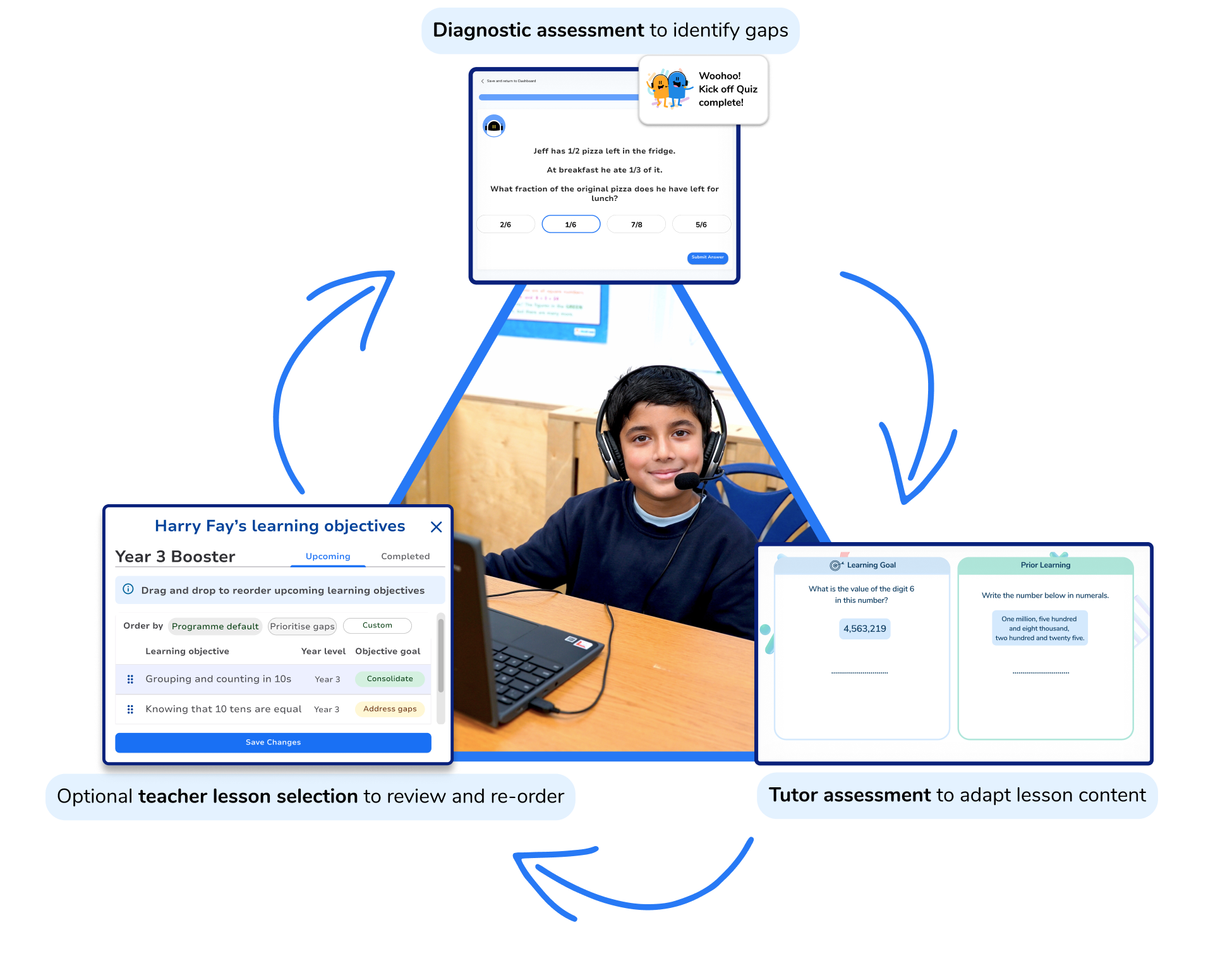
DO YOU HAVE STUDENTS WHO NEED MORE SUPPORT IN MATHS?
Skye – our AI maths tutor built by teachers – gives students personalised one-to-one lessons that address learning gaps and build confidence.
Since 2013 we’ve taught over 2 million hours of maths lessons to more than 170,000 students to help them become fluent, able mathematicians.
Explore our AI maths tutoring or find out about maths intervention programmes for your school.
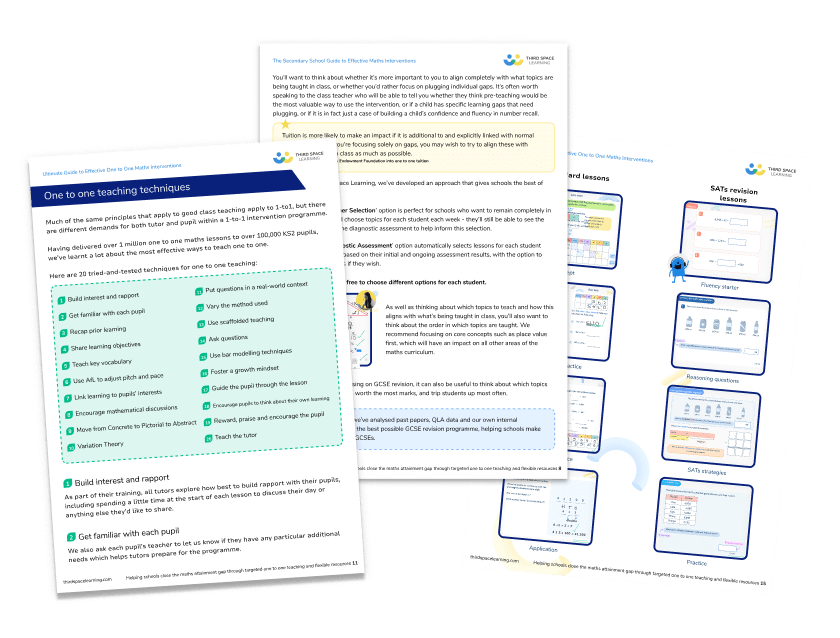




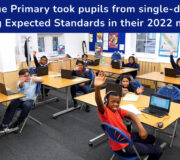
![Effective Praise In The Classroom: What Works & What Doesn’t [FREE Praise Certificate]](https://thirdspacelearning.com/wp-content/uploads/2022/06/OG-effort-points-blog-image-180x160.jpg)
